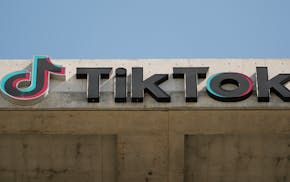Hillary Clinton has defended her use of a private e-mail account and her own server for work related e-mail while she was secretary of state in part because it would be more "convenient" to use one communications device for both personal and work correspondence, rather than two. Although this political dust-up has to do with public access to government records, not private business information, it offers lessons, and raises questions, for private sector employers as well.
Employees in the United States are more likely to use their work e-mail for personal correspondence than they are to use a personal account for work. Most Americans understand that they do not, or should not, have an expectation of privacy regarding the contents of e-mails sent or received through an employer's server. Even if a company has a BYOD ("Bring Your Own Device" to work) policy, which means the smartphone belongs to the employee, the e-mails are still the property of the employer.
That said, there is nothing particularly problematic about using a company e-mail to make a yoga appointment, any more than leaving a voice mail on the office land-line telephone for such a purpose would be improper. In the event of litigation, however, a work e-mail account can be the subject of electronic discovery, and all of those personal e-mails may be exposed to lawyers, and others, in the process. It is therefore a best practice for Americans to have a personal, cloud-based e-mail account to use for personal messages and social media accounts. (Not all of us practice what we preach.)
So-called "electronic discovery" has become a multimillion-dollar industry in the United States, and thousands of cases have turned on damning admissions in e-mails, including an antitrust case in which Bill Gates' e-mail correspondence became key evidence against the company. Even former CIA Director David Petraeus had his personal e-mails tapped by the FBI.
The importance of e-mails in civil litigation today cannot be overstated. Judges often allow litigants to obtain access to tens of thousands of e-mails, or more, in a single case, at significant expense. The evidentiary value of e-mails stems from the fact that they exist somewhere between an old-fashioned letter in terms of permanence and a transcribed telephone conversation in terms of frankness and how much care goes into fashioning the communication.
It is uncommon, but not unheard of, for a private employer to have a policy that "all" work-related correspondence must be routed through official e-mail accounts. The company may provide a company-purchased smartphone and laptop and eschew a BYOD approach, but how do you police such a policy?
First, internal correspondence using an outside e-mail address should be obvious. If an employee is communicating with his boss using a personal e-mail, he is even more likely to be communicating with customers in that fashion, which could be problematic.
Second, to the extent employees forward work-related data and documents from their work e-mail to their personal e-mail "so they can work on it at home" there are software solutions that can detect such activities.
Third, employees can be warned that if they do not follow such a policy strictly, electronic discovery in litigation may require outside attorneys to access all of their personal accounts, similar to the situation Clinton is facing in the lingering Benghazi investigation.
A 100 percent work-mail only for all work communications policy is realistically very difficult in today's technology environment. Not all communications are through e-mail. An employee might send a text to her supervisor saying she will be late. The supervisor may text back and ask where a file can be located. The employee may then text back and ask about pricing data relating to the file. All of a sudden confidential company information is on a system that it outside of company control.
Like many policies, compliance is only as good as enforcement, backed up by warnings and progressive discipline. It is probably best for all of us that we keep personal and work communications separate such that never the twain shall meet.
It definitely makes things easier for litigation attorneys in an age of electronic discovery, it allows businesses to be able to quickly and confidently capture "all" data and communications regarding a certain topic, and it goes a long way to protect confidential information and trade secrets, especially when an employee departs the company.
Thai plastics firm will pay $20 million to settle with U.S. over Iran sanctions violations
Biden administration moves to make conservation an equal to industry on US lands
Stock market today: Wall Street limps toward its longest weekly losing streak since September

